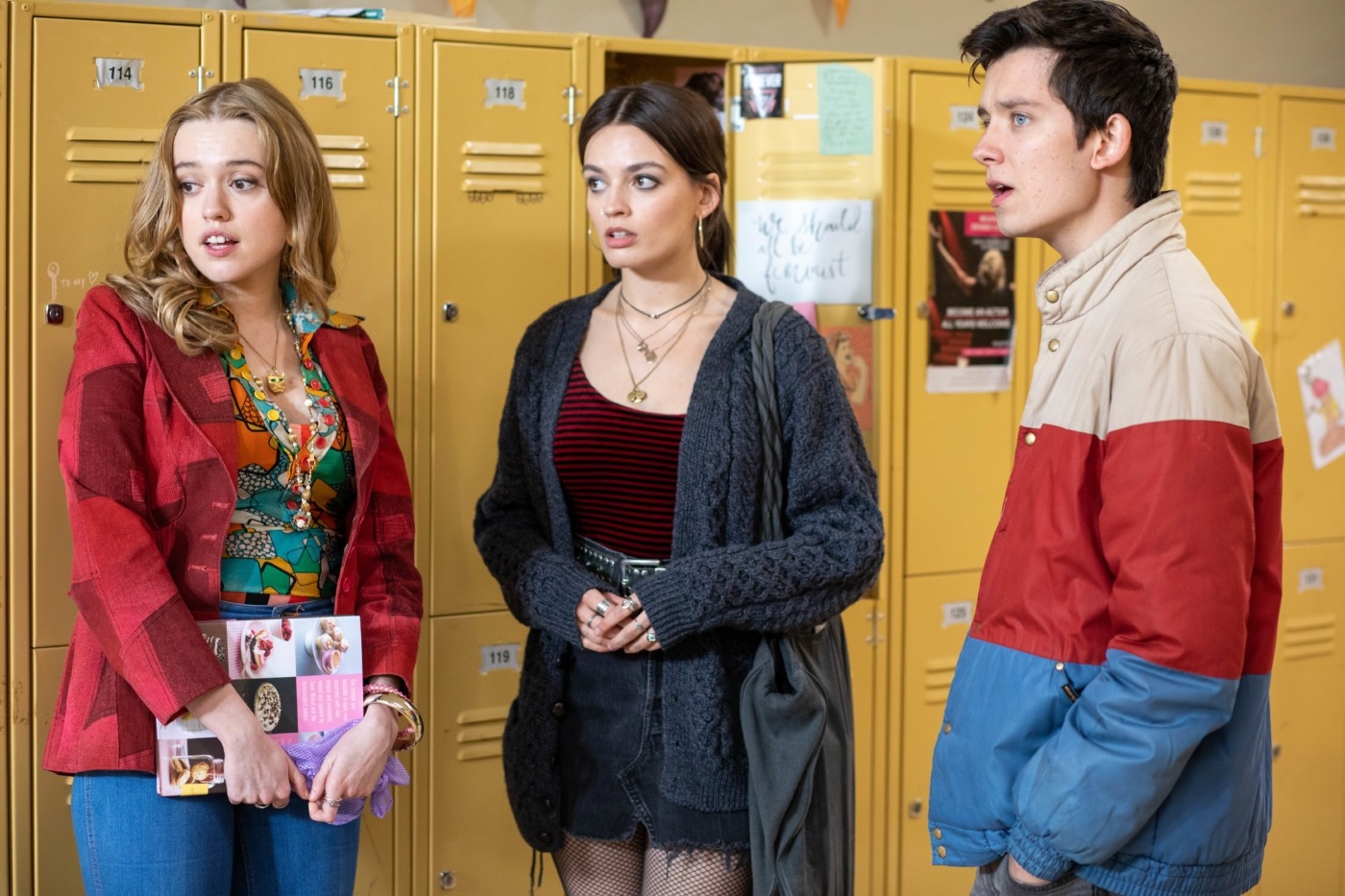Sex Education is back – does it live up to the first series?
The second season of Sex Education picks up in a very different place from where the show began. Otis has abandoned his underground sex clinic and is dating Ola, unaware of mum Jean’s romance with Ola’s father, Jakob. However, a chlamydia outbreak forces Otis and business partner Maeve back together, in spite of their differences, in a storyline underpinning the whole season which highlights the need for better sex education. This isn’t the only big issue that Sex Education tackles masterfully well, however. While the last season examined various sex-related topics including abortion, vaginismus and sexual pressure, this one covers a lot more ground, but never spreads itself too thin.
A particular standout is the storyline handling Aimee’s traumatic experience on the bus and its aftermath. It is honest, raw, sensitively handled and most admirably, very true to life. What makes it perhaps even more heartbreaking to watch is that it exposes a side of her usually cheerful character that we would never expect to see, as the experience destroys the naivety that endeared us to her to begin with.
With Jean’s help, she goes on a journey of sexual discovery that is utterly refreshing to see, given that older women have largely been forgotten in the dialogue about female sexuality
An equally brilliant storyline brings Maureen, Adam’s mother and Mr Groff’s wife, into the foreground. She confesses to Jean that her husband hasn’t touched her for six years and refuses to put up with his lack of intimacy any longer. With Jean’s help, she goes on a journey of sexual discovery that is utterly refreshing to see, given that older women have largely been forgotten in the dialogue about female sexuality. It’s impossible not to cheer Maureen on as she empowers herself, and as with the other female characters on the show, it is great to see her being so sexually forward, a message which is relevant and vitally important for viewers of all ages.
It’s not only Maureen who undergoes a transformation this season, another thing that makes this season so compelling to watch is how the characters we grew to love last season develop. Taking Jackson out of the swimming pool for the whole season after he breaks his hand is a fascinating move which allows him to evolve into more than just the stereotypical jock, as he explores who he is without swimming. The consequences for his parents also shed valuable light on how family dynamics are different when the child is only related to one parent, something television hasn’t often explored.
We finally have more of a reason now to root for Adam, and this story achieves what many TV shows have failed to do: making a character more than just their sexuality
Viewers will also welcome the chance to see Adam become more than just the headmaster’s son and the school bully. Not only is he dealing with his bisexuality, but he also tries to figure out where his talents lie in the professional world. We finally have more of a reason now to root for Adam, and this story achieves what many TV shows have failed to do: making a character more than just their sexuality.
In addition, we meet three new principal characters this season: hyper-intelligent Viv, the mysterious Rahim and prickly, sarcastic Isaac. Rahim is the first new character we meet, and his characterisation is one of the only shortfalls the show has this time around. It is easy to be intrigued by him, but sadly he seems to exist only as Eric’s love interest, and given the usually excellent characterisation on this show, it’s a shame that we don’t get to see more of him in non-romantic contexts (next season, perhaps?).
Viv, meanwhile, is described in one episode, as a ‘robot’ and as you watch, it is easy to understand why this assessment is made. Although viewers might not like her and her grating intelligence at first, her friendship with Jackson allows us to warm to her, and they both bring out the best in each other, which is impossible to complain about.
Seeing a disabled character on screen is also something to be welcomed, as even in an era of representation they are still being left out
Isaac’s case is a similar story: his curtness might also be off-putting at first, but if you’re a Maeve Wiley stan, you will, up to a certain point in the show, grow to enjoy seeing him interact with her. He becomes the friend neither we nor Maeve knew she needed – they have so much in common, and even their sarkiness matches. Seeing a disabled character on screen is also something to be welcomed, as even in an era of representation they are still being left out, especially since he is played by an actor who is disabled in real life.
Sex Education continues to be a joy to watch, and even miraculously surpasses its first season. It’s somewhat darker in subject matter than before, but it almost never feels soapy or gritty in a way other teen shows like Waterloo Road or Ackley Bridge have. Long may it continue to make us laugh, learn and, in the words of Ezra Furman, feel every feeling in the book.
Inspired to watch the first series? Read Gezy Vaughan’s review

Comments